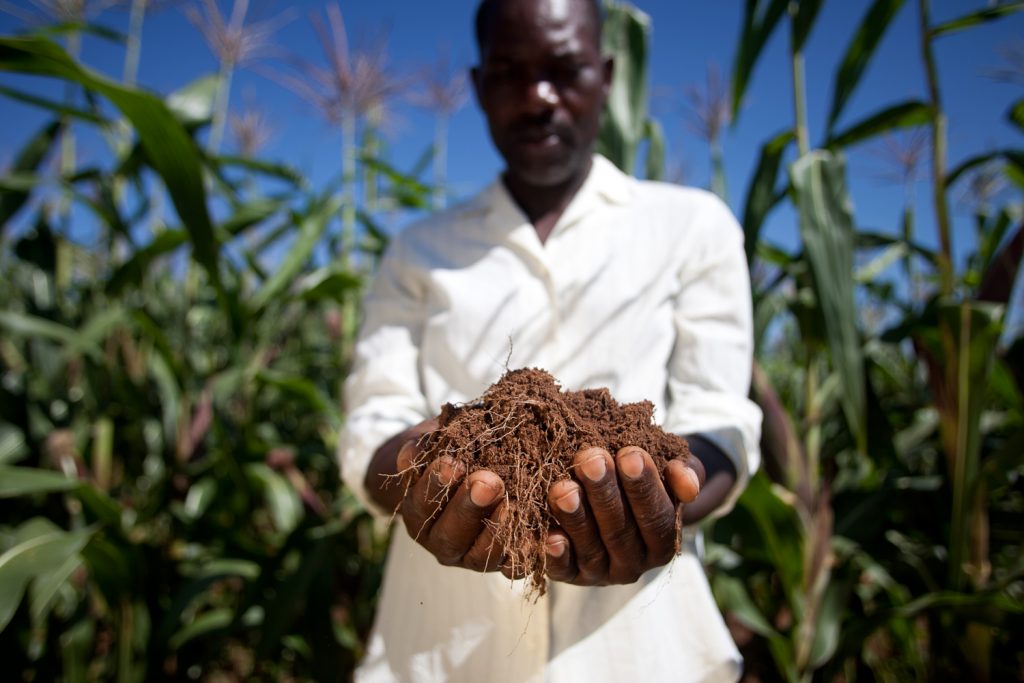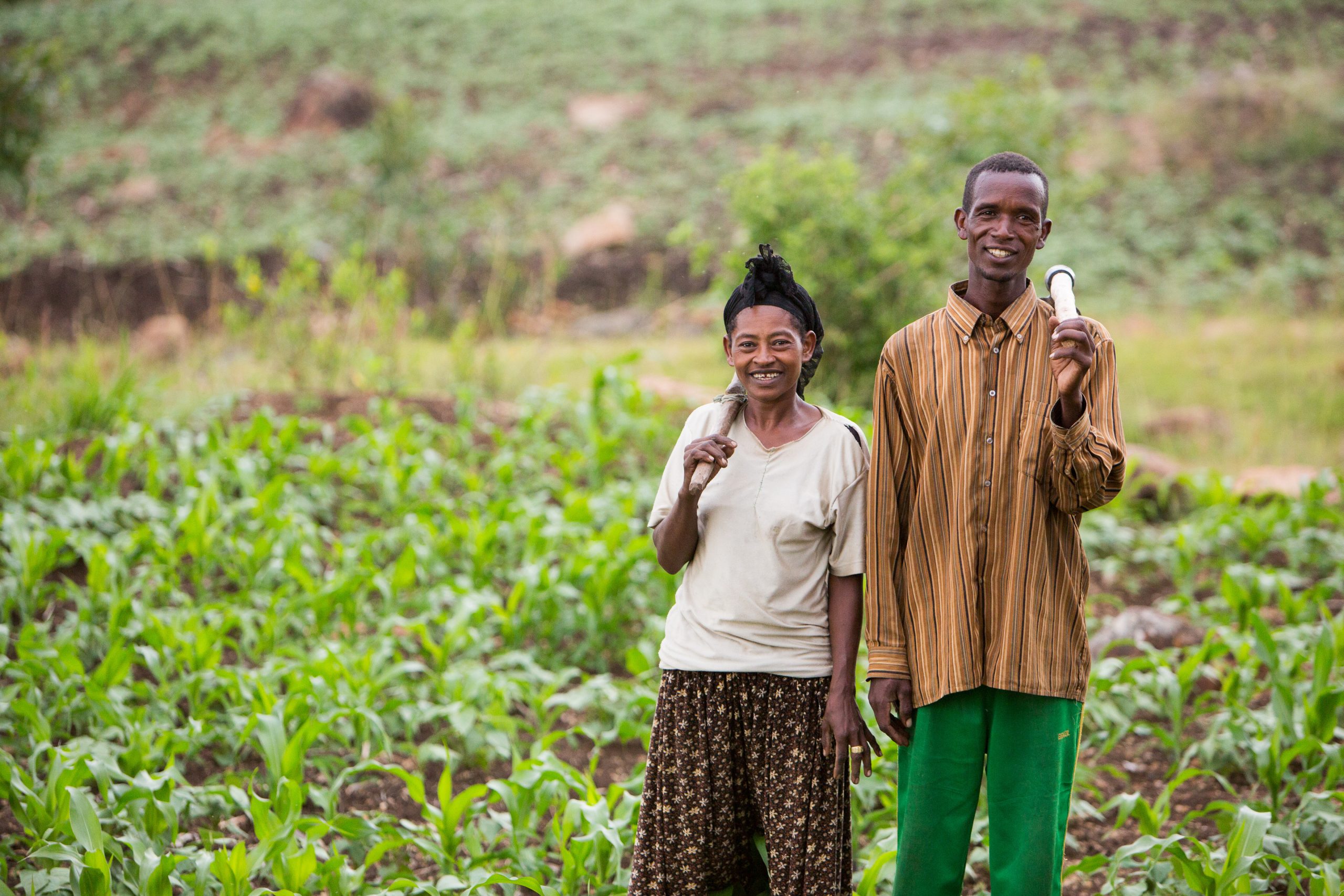The UN has set aside December 5 as World Soil Day “to raise awareness of the importance of maintaining healthy ecosystems and human well-being by addressing the growing challenges in soil management, fighting soil salinization, increasing soil awareness, and encouraging societies to improve soil health” (UN).
Why Soil?
According to Cornell University’s Comprehensive Assessment of Soil Health, “Soil is a dynamic interface between the lithosphere (rock), atmosphere (air), hydrosphere (water), and biosphere (living things). It is the zone in which rocks and organisms, and the air and water that move in and through and around them, interact. Soil is not just the physical parts that make it up, but also the active interactions between its various physical, biological, and chemical parts. A soil’s characteristics determine how that soil functions as a foundation of the ecosystem it is part of, whether natural or managed by humans. When we discuss soil health, we are primarily concerned with the interactive processes involved with this functioning and how human management influences these processes.”

Nuru joins with both other institutions and individuals on this day to recognize the vital role that soil health plays in maintaining healthy food systems, adapting to climate change, and supporting resilience for farmers and their rural communities. At Nuru, we believe that addressing extreme poverty, promoting good agricultural practices, and building healthy local agribusinesses are inextricably connected to improving the health of the soils upon which Nuru farmers rely.
Soil Degradation
Soil degradation can be attributed to a variety of causes. Poor farming practices like extensive monocropping, poor nutrient management, and a lack of crop diversity can deplete the soil. Furthermore, natural events like droughts and floods that have worsened with climate change, make the quality of the soil more compromised.
Poor soil health leads to decreased crop production in arid and semi-arid regions, including Nigeria and the Sahel, where Nuru is currently working and scaling our model. The UN notes that “land degradation is negatively impacting the well-being of at least 3.2 billion people.” The full extent and severity of soil degradation at the farm level is challenging to measure, and the needs of soils are hyper-local. However, we do know that rural communities across sub-Saharan Africa are at great risk to climate change, and enhancing the health of their soils will improve household resilience to environmental and economic shocks.
Building Community Climate Resilience
The soil degradation challenge is global in scale, but the solutions to the subsequent negative impacts must be derived from local knowledge and implemented with local leadership. At Nuru, one of the five dimensions of our community climate resilience strategy is regenerative agriculture. Nuru promotes farming and grazing practices that rebuild soil organic matter and restore degraded soil. We do this by working with farmers in Nigeria, Ethiopia, and Kenya to design and introduce climate-smart (good) agricultural practices like crop diversification, agroforestry, contour farming, crop rotations, and co-creating new innovations with farmers, research institutions, and local private sector and public sector partners.
In Kenya, the Aid & International Development Forum (AIDF) recognized these efforts in 2018, when Nuru Kenya was nominated and short-listed as a Climate-Smart Agriculture Project of the Year. To further address these challenges and deliver better information to farmers, Nuru Nigeria has partnered with GIZ to provide on-farm soil testing services to farmers in 2022. Soil samples will be sent for detailed soil analysis that will inform needed soil amendments and farm planning decisions. This information will be vital for farmers to make informed decisions about good agricultural practices and limit wasteful fertilizer applications.
Soil Health and Sustainability
Soil systems are dynamic, diverse, and vital ecosystems that require human stewardship and value. Soil is the medium that binds our life-giving resources and provides humans with food; healthy soil is the foundation for healthy ecosystems and healthy people. As Nuru scales our work to support farmers’ transition from the vulnerability of subsistence farming to farming as a business through their local cooperatives, we will continue to partner with local communities. The intent will remain to sustainably increase the crop yields and incomes of the community’s farming households, and together find meaningful choices that maintain and build healthy soils.



